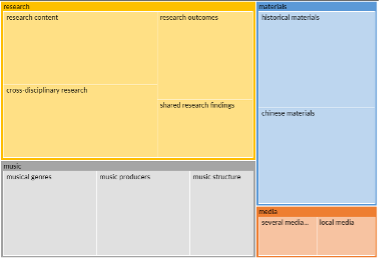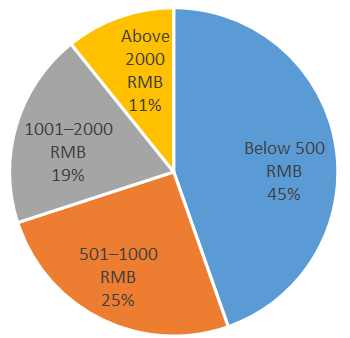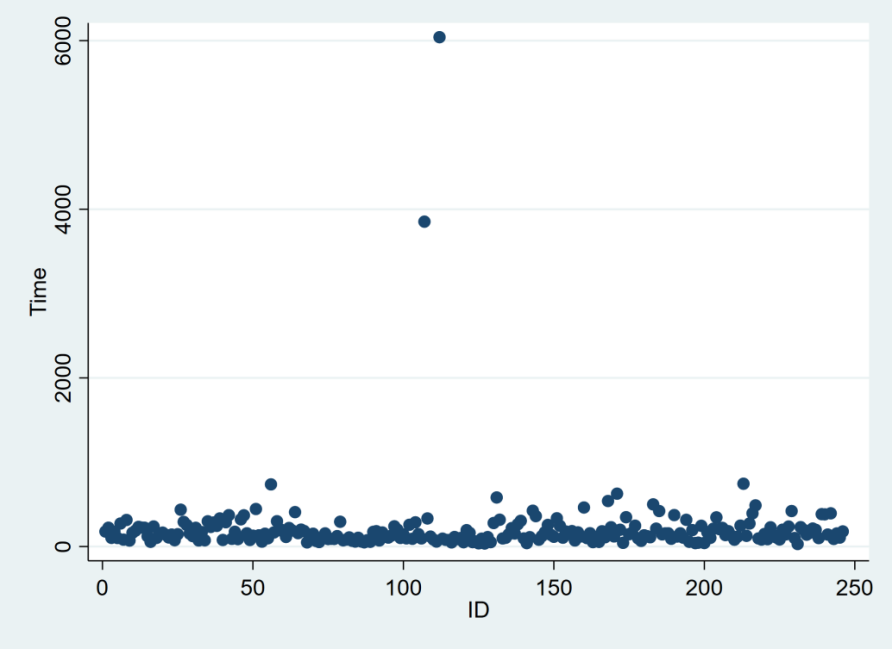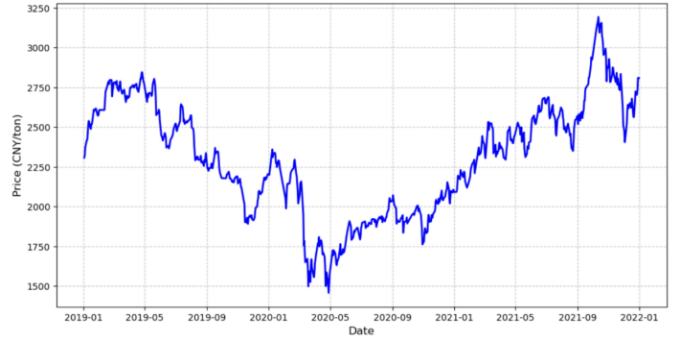

Volume 172
Published on May 2025Volume title: Proceedings of the 4th International Conference on Business and Policy Studies
The management mode of industrial and commercial enterprises can improve the operational efficiency and cost control ability of enterprises, help enterprises formulate scientific development goals, deeply tap the potential of employees, comprehensively understand the financial status of enterprises, promote the improvement of economic benefits, promote corporate culture and brand building, strengthen information construction, and enhance corporate social responsibility and sustainable development ability. At present, the concept of business administration is backward, the management structure is rigid, the management method is single, the talent management is not good, the risk management is insufficient, the strategic management is lacking, the corporate culture is lagging behind, and the degree of internationalization is insufficient. Update the management concept, optimize the management structure, enrich the management means, strengthen talent management, improve risk management, formulate long-term strategies, reshape corporate culture, and promote the internationalization strategy. This paper provides comprehensive guidance for enterprises to innovate the management mode of industrial and commercial enterprises in the context of economic structural transformation.

 View pdf
View pdf


How to promote tourism economic growth by configuring the three elements of labor force, means of labor, and objects of labor is a critical issue under the development context of new-quality productivity. Based on the theoretical framework of new-quality productivity development, this paper constructs antecedent conditions for fuzzy-set qualitative comparative analysis (fsQCA). Using tourism revenue as the outcome variable, four configurational pathways are identified: emerging strategic type, green development type, green innovation type, and talent introduction type. This study further illustrates typical cases of these four pathways for the emergence of a high-level tourism economy under the background of new-quality productivity development and proposes corresponding policy recommendations.

 View pdf
View pdf



The implementation of the RCEP policy has impacted the Chinese language education market in Malaysia in various aspects, including academic research, cultural spirit, music, and media support. Through text mining, quantitative coding, and word clustering analysis, this paper reveals the close connections between these areas. Specifically, academic research not only focuses on language teaching but also explores Chinese culture, philosophy, and other aspects. Especially in the context of cross-cultural communication, cultural spirit may become an important part of academic research. Additionally, music, as a unique form of cultural expression, can be widely disseminated through media platforms, thus promoting the popularization and recognition of Chinese language and culture in Malaysia. These factors intertwine to drive the development of the Chinese language education market in Malaysia and deepen the cultural exchange between China and Malaysia.

 View pdf
View pdf



In the context of globalization, business negotiations on a global scale play a crucial role in the development of sustainable trade cooperation among countries. One of the most significant influencing factors in the success of business negotiations is the translator’s cross-cultural communication ability, which directly impacts a country’s prospects for foreign trade development. This study conducted an in-depth investigation and analysis, examining the influence of cross-cultural communication ability and cross-cultural communication theory on translators in business negotiations for sustainable trade cooperation, grounded in Hofstede’s cultural dimensions theory. The research utilized the Likert scale to assess the cross-cultural communication ability of translators, with a focus on analyzing the translator’s understanding of the business practices and cultural backgrounds of both negotiating parties, as well as the importance of acquiring and mastering cross-cultural communication skills. The findings support the hypothesis that a translator’s exceptional cross-cultural communication ability positively fosters sustainable trade cooperation in business negotiations. Furthermore, this research suggests that cross-cultural communication ability has a direct impact on sustainable business negotiations, with nationalism playing an intermediary role. Specifically, a significant positive correlation was found between cross-cultural communication, sustainable business negotiations, and nationalism. Based on these findings, this article proposes that a translator’s strong cross-cultural communication skills in business negotiations contribute to the promotion of sustainable business cooperation.

 View pdf
View pdf



This study focuses on the Songjiang University Town as the target area, investigating bagel products with the aim of understanding the target audience's demand preferences and consumption behavior. The goal is to provide a scientific basis for product design and market promotion. Through a questionnaire survey, the core needs of consumers are assessed from multiple dimensions such as product taste, flavor, nutritional value, price, and purchasing convenience. Additionally, the study analyzes the differences in preferences based on various identities (e.g., students, faculty, staff, and surrounding residents) and consumption scenarios (e.g., breakfast, snacks, etc.). The results indicate that the audience prefers these that are nutritionally balanced, flavorful, and reasonably priced, with some demand for customized and premium products. Based on this, strategies are proposed to optimize product design, expand sales channels, and enhance brand influence, providing guidance for the market development of bagel products in Songjiang University Town.

 View pdf
View pdf



The study of consumption points in the biopharmaceutical industry, using it as a case study, is an essential premise for ensuring the rapid development of new technologies. Based on an online survey of Chinese samples, this paper explores the relevant characteristics of micro-level individual consumption in the biopharmaceutical industry and analyzes the key factors behind it using a univariate linear regression model. The research findings suggest that most residents in China currently hold an optimistic attitude toward new biomedicine technologies, but have not yet used AI-based medical products or services. They are, however, willing to cautiously try AI-assisted medical products or services and believe that some products are overpriced, offering poor cost-performance ratios, which hinders their consumption of new technological products. More importantly, the study reveals that the impact of residents’ information on their experience with biomedicine and their knowledge reserves on biopharmaceutical consumption is positive and favorable.

 View pdf
View pdf



The COVID-19 pandemic has triggered worldwide recessions, highlighting the significance of the performance of various asset classes during a crisis. This study examines the performance of gold and fuel oil futures pre- and post-pandemic. The research employs data from the CSMAR database (2019-2021) for trend analysis, correlation analysis, and volatility analysis utilizing Python. The results revealed that gold prices steadily rose while volatility decreased during the pandemic, illustrating the resilience of safe-haven assets. The price of fuel oil exhibited considerable fluctuation as energy usage declined, later rebounding with the economic recovery. During the outbreak, the correlation between gold and fuel oil decreased, showing the unique causes affecting each commodity. Research indicates that integrating safe-haven assets with industrial assets during a crisis enhances risk diversification; gold serves as a hedge against uncertainty, and fuel oil advantages from economic recovery. This study offers pragmatic suggestions for investors regarding asset allocation in turbulent markets.

 View pdf
View pdf


This article provides a comprehensive financial analysis of Toyota Motor Corporation, aiming to evaluate its market performance, financial health, and future development strategies. As one of the world’s leading automakers, Toyota maintains a strong position in the global automotive industry through its competitive advantages in hybrid technology, extensive global operations, and strong brand reputation. The study examines Toyota’s financial stability by analysing key financial indicators such as revenue growth, profitability, debt levels, and cash flow management. Additionally, the paper explores Toyota’s strategic positioning in response to evolving industry trends, including the rapid expansion of electric vehicles (EVs), advancements in autonomous driving, and the increasing importance of sustainability initiatives. While Toyota continues to leverage its expertise in hybrid vehicles, it faces growing competition from emerging EV manufacturers and the pressures of global regulatory changes. To provide a well-rounded evaluation, this study employs SWOT analysis, financial performance assessment, and strategic forecasting. The findings offer valuable insights for investors, industry analysts, and policymakers looking to understand Toyota’s long-term growth prospects in an increasingly dynamic and competitive market.

 View pdf
View pdf


This study offers a comprehensive exploration of the impact of environmentally friendly materials on consumers' willingness to purchase products in the context of sustainable packaging design. By addressing the research gap regarding how specific environmental materials influence consumer behavior, the study reveals key insights into the relationship between sustainable packaging and purchasing decisions.Through comprehensive analysis, it is revealed that the use of environmental protection materials can enhance consumers' cognitive value of products, enhance brand image and promote purchase decisions, while emphasizing the important impact of consumers' environmental awareness, education level and income level on environmental protection packaging preferences. In addition, consumers' environmental awareness, education level and income level are important factors affecting their preference for environmentally friendly packaging. At the same time, the environmentally friendly materials used in sustainable packaging design also have a positive impact on corporate reputation and brand image, which promotes the development of the whole industry in a more environmentally friendly and sustainable direction. The results are of great significance for enterprises to formulate effective packaging strategies and improve market competitiveness.

 View pdf
View pdf


The real estate industry serves as a fundamental pillar of global economic growth and development, attracting substantial investments due to its interconnectedness with various industries. New World Development (NWD), a leading real estate developer in Hong Kong, is currently facing significant financial and operational challenges. These include high debt levels, declining cash flows, and macroeconomic uncertainties, all of which have raised concerns about the company’s financial stability. This essay provides a detailed analysis of NWD’s financial performance through key financial metrics, including liquidity ratios, solvency ratios, profitability ratios, and cash flow statements. Additionally, it examines external risks such as market volatility, interest rate fluctuations, and regulatory changes that may impact NWD’s future growth. Through a comprehensive evaluation of these factors, this study assesses NWD’s ability to navigate financial distress, maintain operational efficiency, and sustain long-term profitability. The findings aim to provide valuable insights for investors interested in the real estate sector, offering strategic recommendations on whether NWD remains a viable investment option amid current economic uncertainties.

 View pdf
View pdf




